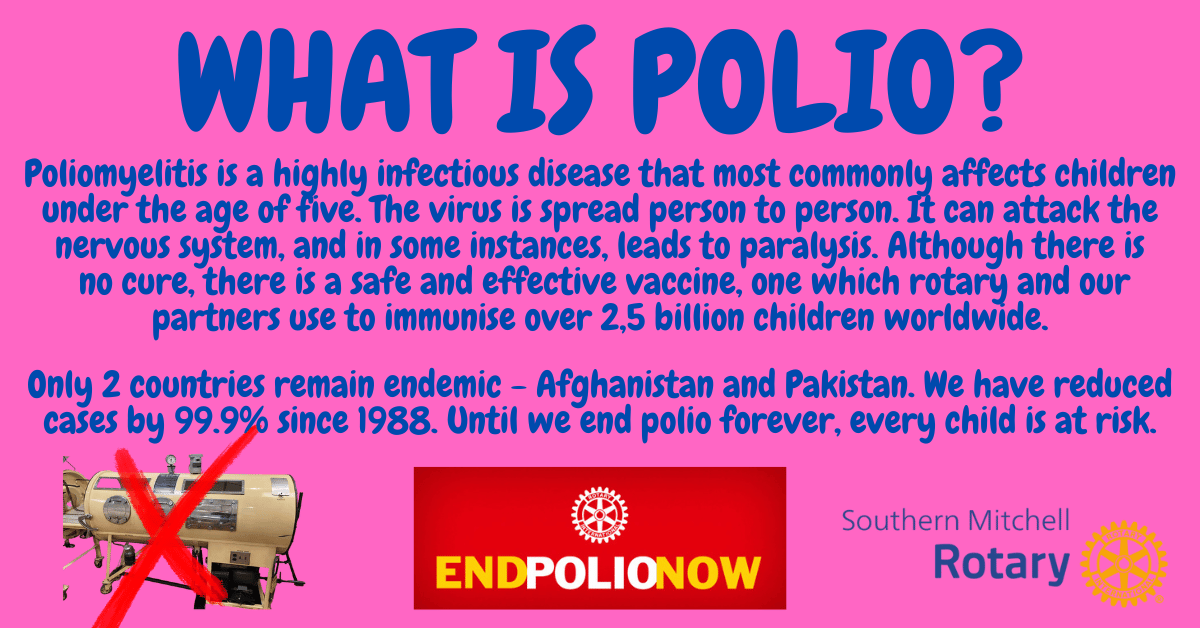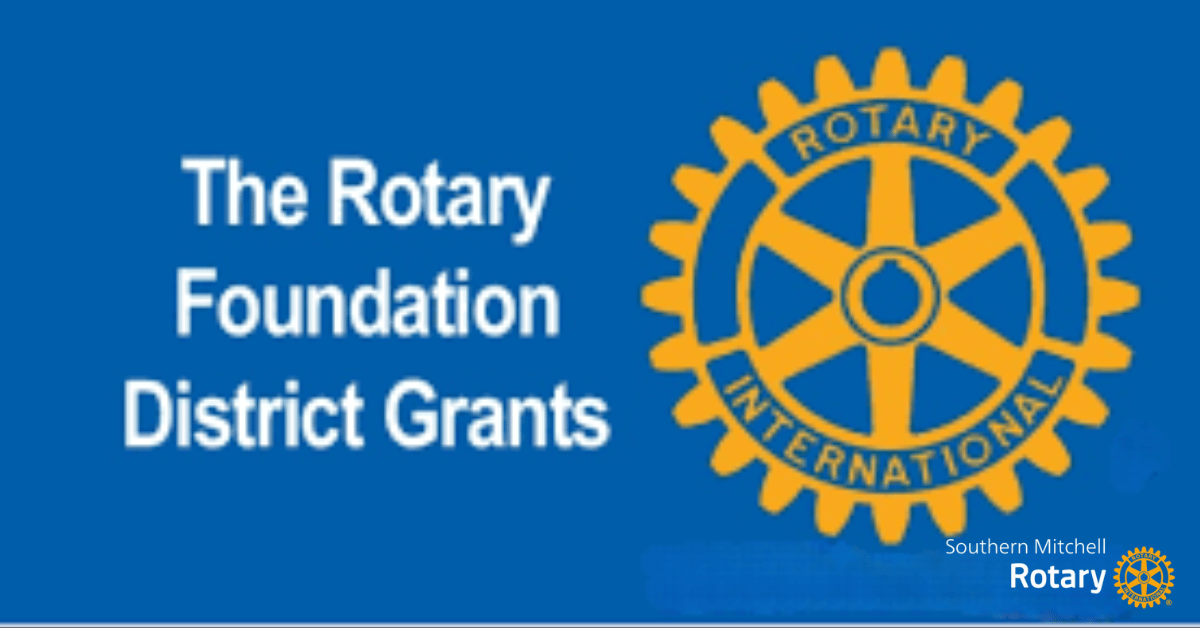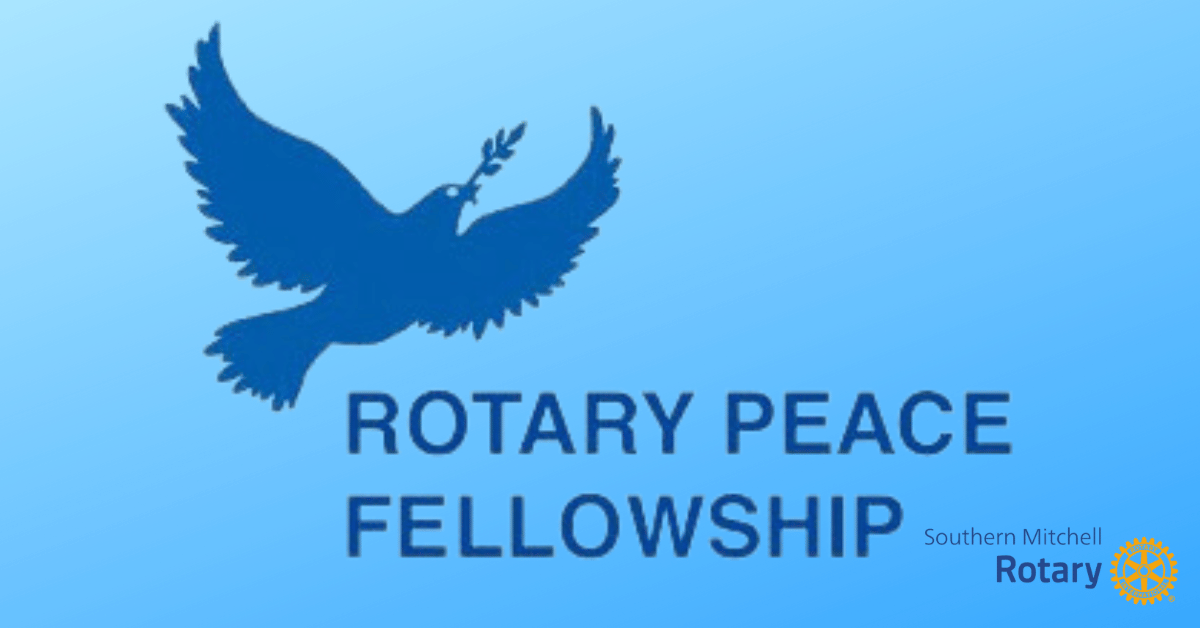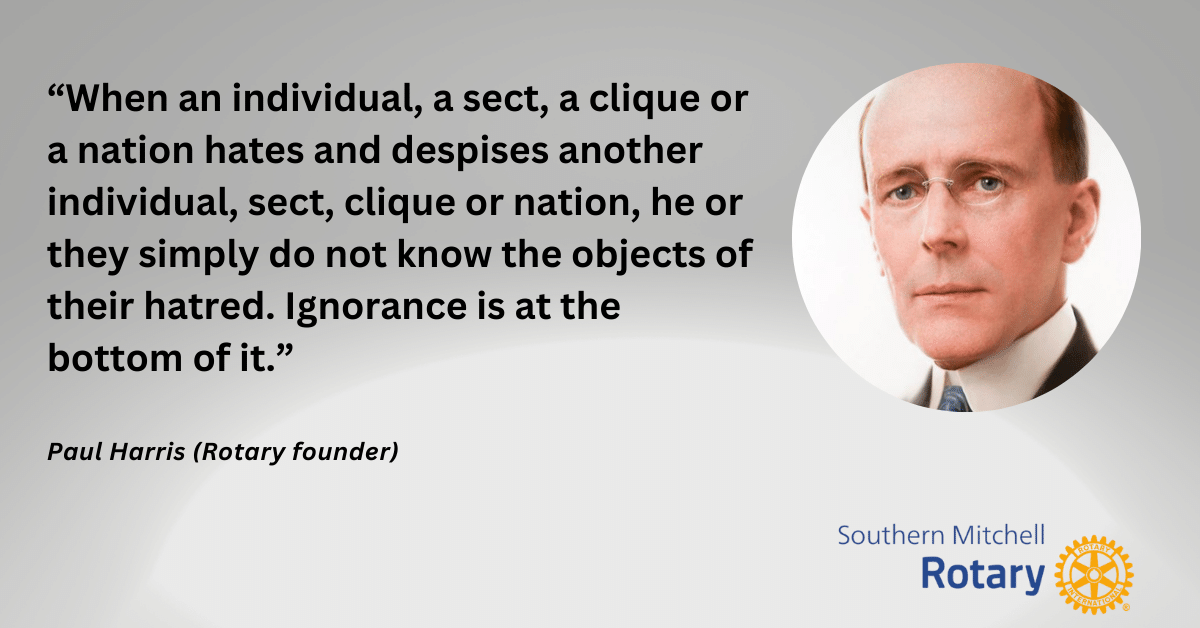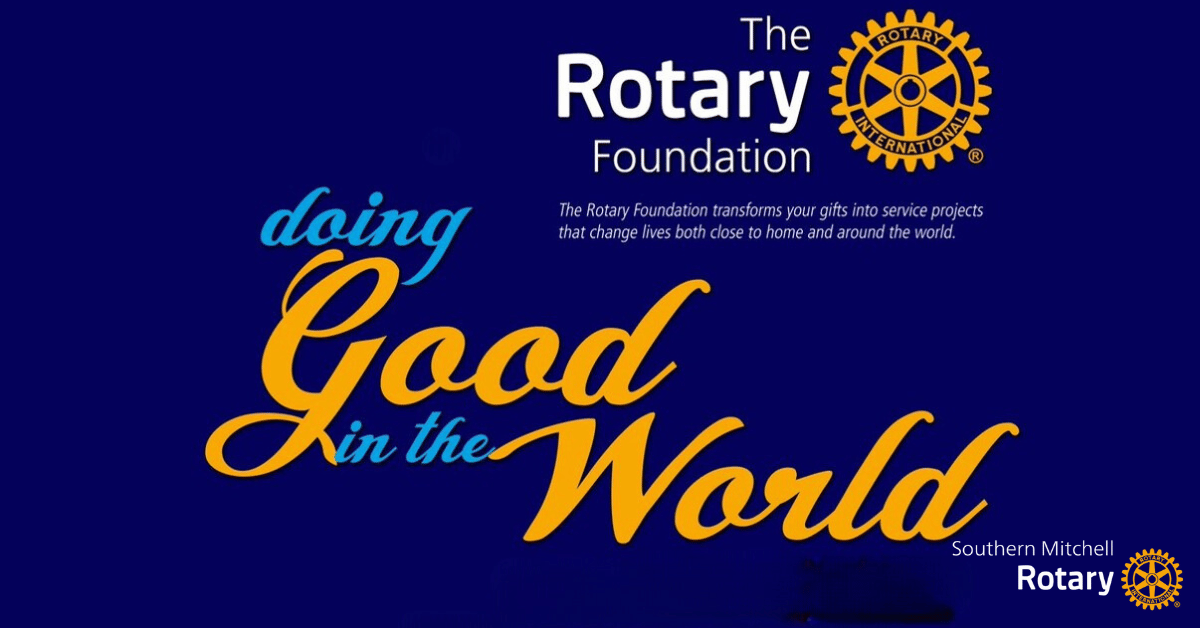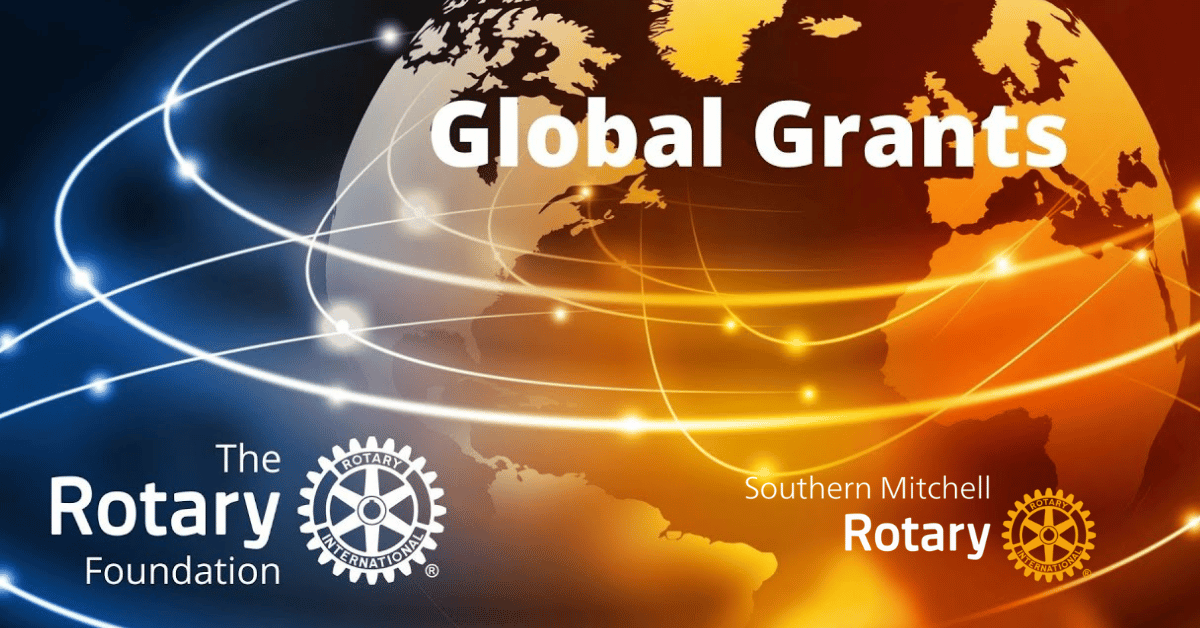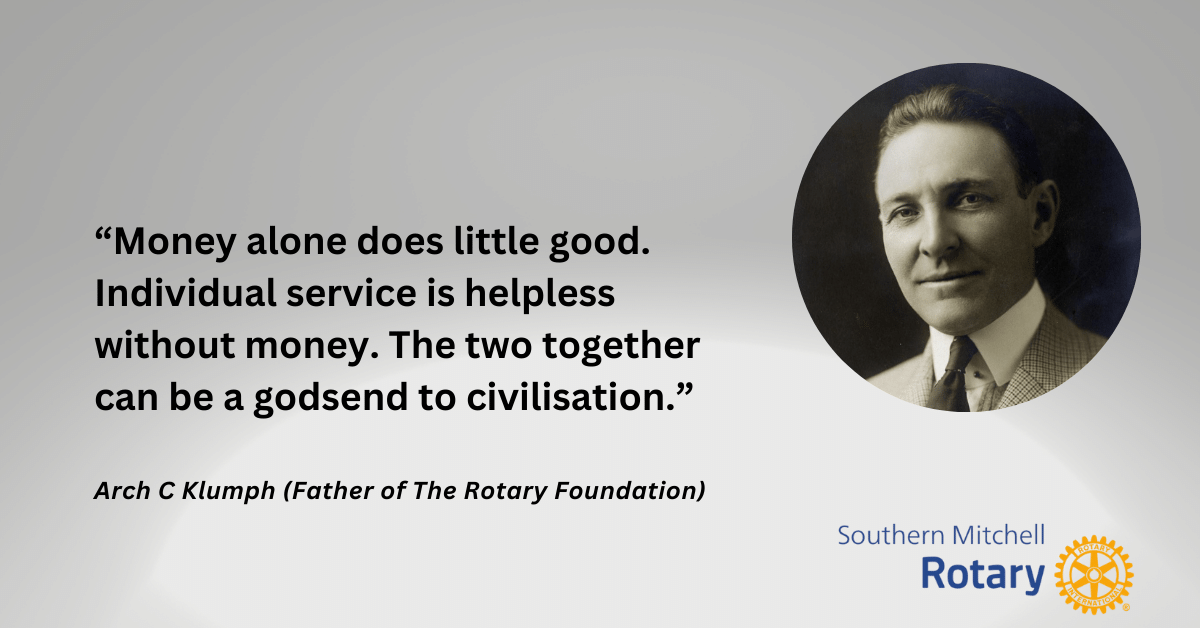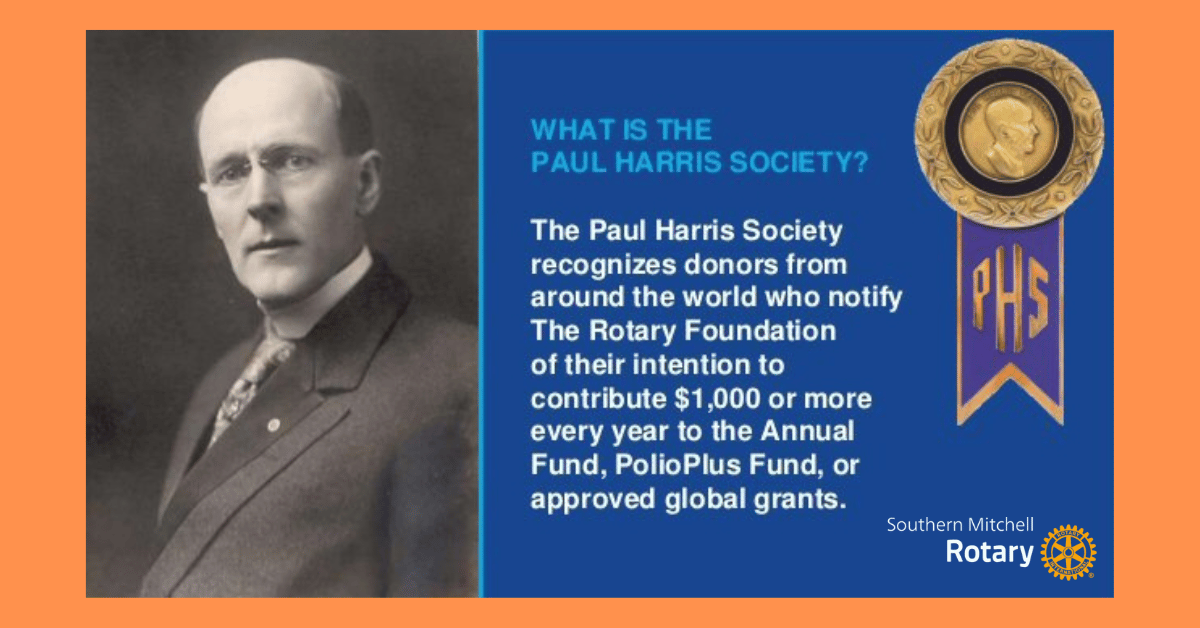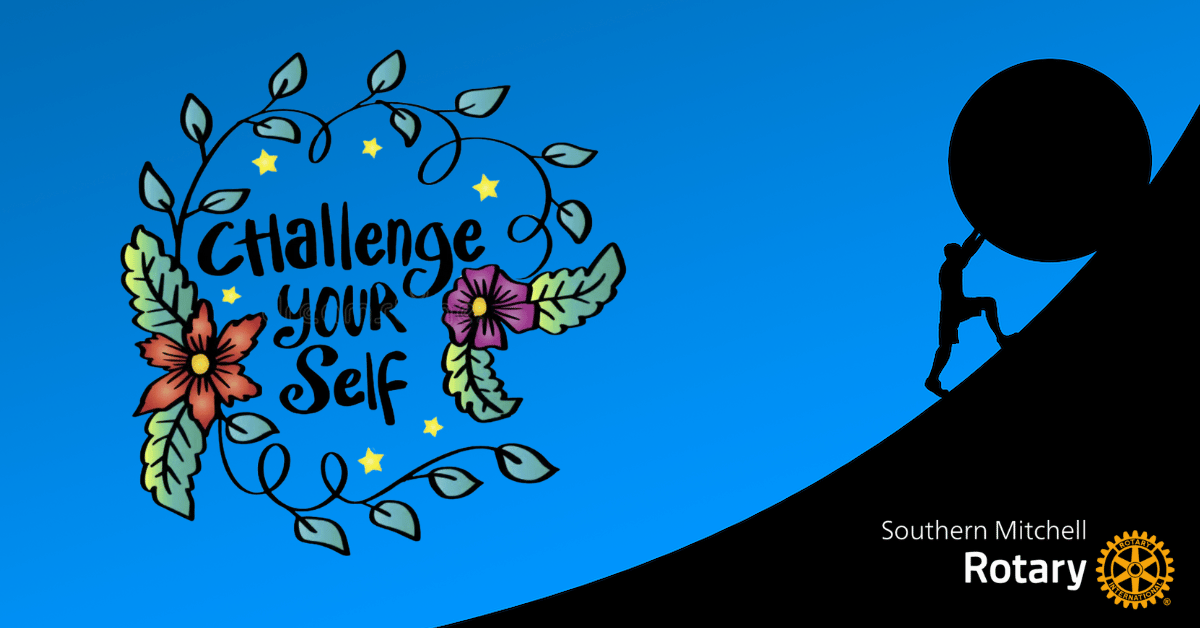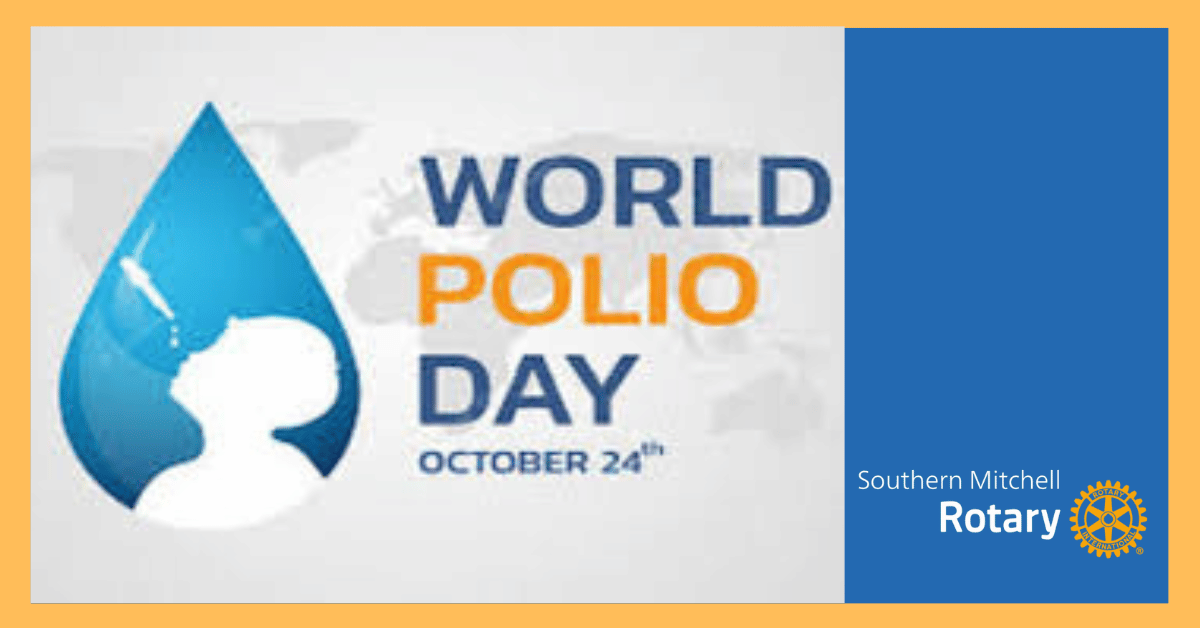01 What is The Rotary Foundation?
The Rotary Foundation is the economic engine for Rotary International. It is a nonprofit corporation that is supported solely by voluntary contributions from Rotarians and friends of Rotary who share its vision of a better world. Its sole mission is to enable Rotarians to advance world understanding, good will and peace through the improvement of health, the support of education and the alleviation of poverty. We accomplish that through our local and international humanitarian and educational programs.
02 The founder of The Rotary Foundation, Arch C. Klumph
A member of the Rotary Club of Cleveland, Ohio, USA, Arch C. Klumph served as the RI president in the 1913-14 Rotary year. In 1917, Klumph declared that “we should accept endowments for the purpose of doing good in the world in charitable, educational, and other avenues of community service.” His vision and a contribution of US$26.50 left over from the RI Convention helped to establish the charitable and humanitarian arm of our organisation, The Rotary Foundation. Due to the hard work and generosity of Rotarians worldwide, The Rotary Foundation has improved lives for over 100 years. With ongoing financial support, our Foundation will continue to carry on Klumph’s dream well into our second century of service.
03 PolioPlus
Rotary has been working to eradicate polio for more than 35 years. Our goal of ridding the world of this disease is closer than ever.
As a founding partner of the Global Polio Eradication Initiative, we've reduced polio cases by 99.9 percent since our first project to vaccinate children in the Philippines in 1979.
Rotary members have contributed more than $2.1 billion and countless volunteer hours to protect nearly 3 billion children in 122 countries from this paralysing disease. Rotary’s advocacy efforts have played a role in decisions by governments to contribute more than $10 billion to the effort.
Today, polio remains endemic only in Afghanistan and Pakistan. But it’s crucial to continue working to keep other countries polio-free. If all eradication efforts stopped today, within 10 years, polio could paralyse as many as 200,000 children each year.
04 Every Rotarian, Every Year
Every minute of every day, someone’s life is being improved by our Rotary Foundation. Wells are being dug in India, blind children are using Braille typewriters in Brazil, toilets are part of improved sanitation in Sri Lanka and dental treatment is available to the needy in Nicaragua. In a world where the divide between the haves and have-nots is growing, we as Rotarians must do our part and “do good in the world.” Contributions from every Rotarian to the Annual Fund every year are critical to making a difference in our world.
05 District Grants
District Grants allow Rotary clubs to identify, plan, and fund worthy projects in their own communities or internationally. Grants can fund improvements such as kitchen equipment for a food pantry, assistance for after-school programs, educational books and stationery for primary school children, or renovations to a playground. The more we contribute to our Foundation’s Annual Fund, the more opportunities and funding we will have for such projects.
The Rotary Foundation allows us to “do good in the world” here in our own community, as well as internationally.
06 A Rotary World Peace Fellow at work on the frontlines
Izabela Pereira, a graduate of the Rotary Centre for International Studies at Universidad del Salvador in Argentina, helped monitor Nicaragua’s election as part of an Organisation of American States (OAS) mission to the country. Izabela says her experience as a Rotary World Peace Fellow and an OAS observer gave her a firsthand understanding of how democracy is being promoted and strengthened in Nicaragua. She has also conducted fieldwork in Senegal and Côte d’Ivoire for the United Nations Development Fund for Women. Izabela is one of hundreds of Rotary World Peace Fellows who have received the training and field experience necessary to work for lasting peace and stability.
Peace fellowship applicants must meet these requirements:
Proficiency in English; a second language is strongly recommended
Demonstrated commitment to international understanding and peace
Excellent leadership skills
Master’s degree applicants: minimum three years of related full-time work or volunteer experience, bachelor’s degree
Certificate applicants: minimum five years of related full-time work or volunteer experience, strong academic background.
Rotary Peace Centres
Duke University and University of North Carolina at Chapel Hill, USA (fact sheet)
Fellows can earn either a Master in International Development Policy from Duke or a master’s degree in various departments from the University of North Carolina. In addition, Fellows at both Duke and UNC can earn a graduate certificate in international peace and conflict resolution from the University of North Carolina.
International Christian University, Tokyo, Japan (fact sheet)
The Department of Public Policy and Social Research offers master’s degrees in social sciences, natural sciences, and interdisciplinary studies.
Fellowship recipients may not study at a Rotary Peace Centre in their home country, except for candidates from Thailand, who may attend the centre at Chulalongkorn University.
University of Bradford, Bradford, England (fact sheet)
The Department of Peace Studies at Bradford is the largest in the world and offers several master’s degrees.
Uppsala University, Uppsala, Sweden (fact sheet)
The Department of Peace and Conflict Research offers a master’s degree in social science. It is internationally renowned for its free and globally accessible collection of data related to conflict.
Chulalongkorn University, Bangkok, Thailand (fact sheet)
The professional development certificate is awarded to experienced professionals who complete the university’s intensive three-month program in peace and conflict prevention and resolution.
Fellowship recipients may not study at a Rotary Peace Centre in their home country.
07 The Rotary Foundation
Would you like to know what The Rotary Foundation is all about? Perhaps it can be captured in this Paul Harris statement, “When an individual, a sect, a clique or a nation hates and despises another individual, sect, clique or nation, he or they simply do not know the objects of their hatred. Ignorance is at the bottom of it.” All of our programs such as Vocational Training Teams, scholarships, global grants and district grants are directed at that ignorance. The Rotary Foundation was started “to do good in the world” and the result is to reduce the hatred that Paul Harris spoke about. When you give to The Rotary Foundation, you work towards a more peaceful world.
08 The Annual Fund
The Annual Fund is the primary source of unrestricted support for the programs of The Rotary Foundation. It funds programs in 200 countries on seven continents. From digging clean water wells for villages in Africa to teaching basic literacy skill to children in Latin America, during any given moment in a day, thousands of Rotarians volunteer their time and expertise to ensure that all contributions given to the Annual Fund are spent wisely on quality Rotary projects.
Only if Every Rotarian makes a gift to the Annual Fund Every Year, we will be able to continue to do the great work of our Rotary Foundation.
09 Global Grants are the powerhouse of The Rotary Foundation
TRF has a marginally complex formula, but simplistically, donations are invested for three years, then almost half comes back to the district as District Designated Fund (DDF) and the other half is held in the World Fund.
Districts can use up to 50% DDF for District Grants and the remainder allocated towards Global Grants.
Global Grants support large international activities with sustainable, measurable outcomes in Rotary’s areas of focus.
By working together to respond to real community needs, clubs and districts strengthen their global partnerships.
A Global Grant requires a host club, where the project will be delivered, and an international club essentially puts the concept and funding together. This will comprise contributions from DDF of one district or many. DDF is matched 80% from the World Fund.
Other funds can be contributed by clubs and individuals, but these are unmatched.
As a minimum there must be a budget of US$30,000.
A global grant will be approved if the project responds to real community needs and is sustainable for long-term success. It needs to align with at least one, but not all, of The Foundation’s seven Areas of Focus and involve Rotary and community members.
10 Matching people with money for positive results
In the words of Arch Klumph: “Money alone does little good. Individual service is helpless without money. The two together can be a godsend to civilisation.”
Your financial resources combined with your time, energy and talent is critical to Rotary’s mission. 89% of your contribution goes directly to the programs of The Rotary Foundation, while 2% is used for administration and 9% is for fundraising. These percentages are remarkable among charities across the world. This is why The Rotary Foundation gets such high marks from organisations that rank charities, such as Charity Navigator and the Better Business Bureau.
As Rotarians, there is no better place to donate our money. We get to use our own contributions to do good in the world.
11 Being a Rotary Foundation Sustaining Member
What can you get for US$100 dollars these days? A pair of shoes, a nice dinner for two or a stove for a needy family in rural Guatemala, A contribution of US$100 to the Annual Fund will make you a Sustaining Member of The Rotary Foundation, but it also provides life-changing opportunities for those in need. When you choose to support our Rotary Foundation, you are making a difference in two ways: you are changing lives, and you are literally saving lives. What an amazing thing to be able to say!
12 The Rotary Peace Centres Professional Certificate Program
Mid-career professionals from around the world, representing a wide variety of fields, participate in an intensive three-month course at Chulalongkorn University in Bangkok, Thailand. Rotary Peace Centre alumnus Richelieu Allison, Regional Director of the West African Youth Network, says, “This course has been the missing link in my [ability] to contribute to the resolution of the numerous problems confronting my region. If I had had the knowledge I am gaining now, I would have been in a better position to adequately analyze the conflicts, map out the various actors, go the extra mile, and play a major role in helping to restore peace.” This sentiment has stuck with him, as he wrote in a recent email, “The changes [the program] made in my life cannot be overemphasised.”
A gift to the Peace Centre Endowment Fund can make a difference!
13 The Seven Areas of Focus
For more than 100 years, Rotarians have joined together from all continents, cultures, and industries to take action in our communities and around the world. With a commitment to achieving lasting change, we work together to empower youth, enhance health, promote peace, and most important, advance the community. While Rotarians can serve in countless ways, Rotary has focused its efforts in seven areas, which reflect some of the most critical and widespread humanitarian needs:
Peace and conflict prevention/resolution
Disease prevention and treatment
Water and sanitation
Maternal and child health
Basic education and literacy
Economic and community development
Environment
Rotarians planning new service projects are encouraged to consider these areas and the many opportunities for innovative projects.
14 Paul Harris Society
Named after Rotary’s founder, the Paul Harris Society recognises those who annually contribute US$1,000 or more to the Annual Fund, PolioPlus, or an approved Rotary Foundation grant. By joining the Paul Harris Society, you are making a lasting difference in communities around the world. Rotary Direct, Rotary’s recurring giving program, makes it easy to join the Paul Harris Society. Consider making a gift of US$85 a month or US$250 a quarter by using the contribution form or by visiting www.rotary.org/contribute. Is this something that you could consider? Think of the difference you could make in the world.
15 Our Foundation Alumni
Former Rotary Peace Fellow from Norway Gert Danielsen, out of a desire to give something back, pledged to donate US$1,000 every year for the rest of his life to the Rotary Peace Centres program and challenged other Peace Fellows to do the same. Inspired by Danielsen’s generosity, Peace Fellow Scott Lang of the United States took up the challenge and also pledged US$1,000 annually. “My challenge and support reflects a keen desire to give back to the Rotary family now that I am able to do so,” Danielsen says. “Giving a gift annually that I know will inspire Rotarians and others to give more and provide peace-building opportunities for even more people is a huge privilege to me.”
The commitment made by these two Foundation Alumni is a true testament to the quality of the Peace Fellows and the Rotary Peace Centres program.
16 What US$100 can do
It is as simple as having a notebook, pencil and glue. In Pavas, a poor district in San Jose, Costa Rica a packet of educational materials means the difference between an education and working on the street. Most public schools in Costa Rica are under funded and lack many basic supplies, so the Rohrmoser Rotary Club, Costa Rica developed a packet of teaching materials for students and partnered with the Vancouver Rotary Club, Canada to distribute 777 packets to children in five very poor elementary schools. US$100 buys 15 packets. Without this project, many students would not be able to continue their education and would be forced to drop out of school.
When Every Rotarian, Every Year, participates, our foundation is able to continue to build a brighter future for the children of the world.
17 Fundraising for PolioPlus
What would you do to eradicate Polio? Would you shave off all your hair? Rotarians in District 5040 did just that and raised US$10,000 for PolioPlus. Would you hike 2,658 miles over six months? Rotarian Chrissy Wallace of California did to raise money for Rotary’s PolioPlus program. Would you cycle 4,165 miles on the Trans America Trail? Rotarian Robert Keegan of Tennessee did to benefit PolioPlus. Dedicated individuals, clubs and districts continue to promote and support PolioPlus at every opportunity possible. Many districts also give a portion of their District Designated Funds to the polio effort.
What can you do for PolioPlus?
18 Vocational Training Teams (VTT)
In 2013, Ian Lancaster, of the Rotary Club of Northumberland Sunrise, Ontario, in District 7070, led a vocational training team of medical professionals to Nagoya, Japan, in District 2760. The team, funded by a global grant, comprised a physician, a clinical nurse specialist, a spiritual care professional, a nurse practitioner, and a nursing supervisor. All had experience in palliative care, the branch of medicine that focuses on relieving patient suffering. A Japanese medical team travelled to Ontario to learn about Canadian approaches to this field.
The impact of Vocational Training Teams touches not only the beneficiaries of the grant, but the team members as well.
19 What a US$1,000 dollar contribution can do
A contribution of US$1000 helps provide seven toilets in Sri Lanka. More than 2.6 billion people still lack access to proper sanitation. Most people in the developed world do not think about their sanitation system unless it is not working properly, but in Sri Lanka many people lack access to proper sanitation facilities. The Rotary club of Ja-Ela Kandana, Sri Lanka partnering with the Rotary Club of Madras Northwest, India took the matter into their own hands and obtained a Rotary Foundation Grant to provide sanitation to a small community comprising 15 families. They built fourteen toilets, providing the families with proper sanitation. This will insure a reduction in illness and increase the health and wellness of this community.
The impact of US$1,000 is significant. Think about that the next time you donate to The Rotary Foundation.
20 How a Rotary Grant can make a difference
Rotary clubs in Brazil and Mexico and the United States joined together in a Rotary Foundation grant to aid the Lar das Criancas Children’s Home in Tanabi, Brazil. This institution provides free extracurricular activities and much needed daycare for low income families. A grant was used to help the Home purchase uniforms for all the children. Each student also received school supplies, gym shoes, swimsuits and caps. Tanabi Rotarians have seen the student’s interest in learning and participating in activities improve, as well as the children’s sense of self-worth after the uniforms and equipment arrived. This is just one of the many examples of how the Foundation’s humanitarian grants programs can make positive changes for children.
21 Rotary Group Study Exchange
Embark on an unforgettable journey of learning and cultural immersion! Rotary’s Group Study Exchange offers young professionals the chance to broaden their perspectives, strengthen their skills, and build lasting international friendships. Experience personal growth and global connection—together, we make a world of difference.
Some of the greatest stories being told today started with a contribution to The Rotary Foundation. Let’s make sure our club is part of the Rotary story.
22 Why we support our Foundation
Every minute of every day, someone’s life is being improved by our Rotary Foundation. Rotary clubs on every continent are working to improve the living conditions and health of their fellow citizens. Rotarians like you and me can make a difference by continually supporting our Foundation and the Annual Fund. As Rotarians, we determine where funds are allocated through District Designated Funds, which we can use for local or international projects. When we contribute to our Foundation, we are promoting worldwide Peace and Understanding.
Only if Every Rotarian Every Year makes a gift to the Annual Fund, we will be able to continue to do the great work of The Rotary Foundation.
23 The programs of The Rotary Foundation
When the Foundation’s founder Arch C Klumph said:
“The Rotary Foundation is not to build monuments of brick and stone. If we work upon marble, it will perish; if we work on brass, time will efface it….but if we work upon immortal minds, if we imbue them with the full meaning of the spirit of Rotary, we are engraving on those tablets something that will brighten all eternity. "
The educational, humanitarian and PolioPlus Programs are the monuments of the Rotary Foundation and Rotarians should be proud to yell it from the roof tops. We will eradicate polio, hunger and poverty. We will help the world find peace. By supporting the Rotary Foundation with an annual gift, you help build these immortal monuments of Rotary.
24 A unique relationship formed between two Peace Centre Fellows
Raveendra Pathiranage, senior state counsel in the attorney general's office in Sri Lanka, and Thevananth Thevanayagam, program manager for the Refugees Rehabilitation Organization in Sri Lanka providing food, shelter, rehabilitation, and other assistance to Tamil refugees, found themselves unlikely classmates in the inaugural session of the Rotary Peace Centre program. After arguing incessantly, the two formed a strong bond, united in a desire to bring peace to their homeland.
"We erased the hard feelings and went on to ‘What can we do to solve the problem? What can we contribute?'" said Pathiranage. The two remain close friends even a year after completing the three-month program, which Pathiranage describes as more useful than a year's worth of graduate study.
Every minute of every day somewhere in the world, our Rotary Foundation is making a difference in someone’s life.
25 A Rotarian goes the distance for the Foundation
Running, biking and swimming 482 miles in the course of a year or even a month is hardly the marvel of sports headlines. But racking up that distance in three days staggers the imagination. Jeff Glidden did just that through his Ultra Distance Triathlon Challenge, raising US$100,000 and counting, for the Annual Fund. “It was difficult” said Glidden, “but it was more rewarding than anything I have ever done. Many Rotarians that had never given before contributed and supported me, that was definitely one of my goals” Corporate sponsors helped fuel Glidden’s megatriathlon challenge by each contributing at least US$1,000. Local media coverage also raised overall awareness of Rotary. All the proceeds from Glidden’s challenge went to support The Rotary Foundation.
There are many ways to advocate and donate. Maybe you can think of something new and creative.
26 Leave a legacy as a Bequest Society member
This is best expressed through a quote from the founder of The Rotary Foundation and Past RI President, Arch C. Klumph
“There are tens of thousands of Rotarians who will look upon this opportunity (building the Rotary Foundation as a real privilege)…Then there are other men who are seeking ways and means of leaving some part of their wealth where it may do the greatest good for humanity. What better equipped organisation or institution than Rotary International can be found to be entrusted with such funds?”
Join with fellow Rotarians past and present who have left their legacy by remembering The Rotary Foundation in their estate plans.
27 Two Rotary Peace Centre alumni working together
Rotary Peace Centre program alumnus, Francis Kabosha is busy repatriating refugees in Zambia back to their homeland in the Democratic Republic of Congo (DRC). Through the repatriation process, Francis also educates the leaders of the repatriated groups in the ways of peace to help them build and maintain peace in their home areas. He recently called his fellow Rotary Peace Centre alumnus, Abdulai Jalloh, logistics officer for the United Nations in DRC, to say, “I’m giving them the tools to build peace, you must ensure they reach their destinations safely.” Francis and Abdulai now work together to build peace in the region.
When you donate to The Rotary Foundation, you help make a difference in the world. Donate today.
28 Turning waste into profit for Philippine coconut farmers
With the aid of a Rotary Foundation grant, the Livelihood Project gives local farmers the supplies and labour to turn wasted coconut husks into “coconuts”, which have environmental and economic benefits for the community. The project increased employment levels for women and out of school youth while reviving the local coconut industry. Coconut husks, which are a huge source of agricultural waste, are now used to make coconuts, which help provide an environmentally friendly solution to land erosion and degradation. Another husk byproduct, coconut dust, is used as a soil enhancer and organic fertiliser.
This is an example of how The Rotary Foundation is helping smaller communities throughout the world and is ensuring that economic growth reaches the poorer communities.
29 PolioPlus Program
Rotary International encourages Rotarians to be advocates for its #1 goal, the eradication of polio in the world. The goal of polio eradication remains elusive, with three countries still polio-endemic. In 2013, the Global Polio Eradication Initiative (GPEI), a partnership launched in 1988 by national governments and spearheaded by the World Health Organization (WHO), Rotary International, the US Centres for Disease Control and Prevention and UNICEF, with support from the Bill & Melinda Gates Foundation developed the “Polio Eradication and End Game Strategic Plan”. This End Game Strategic Plan identifies polio eradication to be completed by 2018 at a projected cost of US$5.5 billion. The Bill and Melinda Gates Foundation has opted to match $2 for every dollar donated to PolioPlus by Rotarians from now thru 2018. The developing world can save more than US$40 - 50 billion by eradicating this dreaded disease, plus avoiding the exposure of a potential 10 million children to polio over the next 20 years alone. Since 1988, over 2.5 billion children have been immunised against polio. Since that year, the number of cases of polio in the world has been reduced by 99%.
We only have 1% to reach our goal. We must not lose sight of our vision of a world without polio. Not only that, but we must finish our work and hold true to our promise to the children of the world.
30 Arch C. Klumph Society (AKS)
Begun in 2005, Arch C. Klumph Society members are among The Rotary Foundation’s top leaders and innovators. Members believe in the work of The Rotary Foundation and have made supporting peace, education, and humanitarian assistance part of their personal mission. They are key supporters of the Foundation, and their involvement is vital to its work. Donors whose cumulative contributions amount to US$250,000 or more qualify for membership in the Arch C. Klumph Society.
While not everyone can reach this level, it is certainly something to strive for. Imagine the difference a gift of that size can make in the world.
31 District Grants
Following the migratory patterns of local birds, three Rotarians from District 5690 (parts of Minnesota and Wisconsin, USA) and a park superintendent travelled south to Costa Rica to establish a “sister park” relationship among national parks in both countries. Under the agreement, more than a dozen US parks will work with seven in Costa Rica, focusing on staff development and adult and youth education about rural tourism, environmental affairs, watershed protection and other issues. With travel funded by a US$5,400 district grant, the team explored potential projects on the Osa Peninsula and consulted with area organisations.
As you can see, funds from The Rotary Foundation can help in many different ways. Every Rotarian, Every Year, makes these programs possible.
32 How we make a positive impact for peace today
The Rotary Peace Centres offer a professional development program that is strengthening the leaders of today for peace. Beyond supporting the program financially, clubs and districts can actively recruit qualified applicants each biannual program session. Each district can submit as many candidates for each program session as they deem qualified. As one World Peace Fellow recently put it, “The program has been nothing short of fantastic. I couldn’t ask for more.”
Give peace a fighting chance by opening the door for candidates in your district.
33 Making a Major Gift to the Annual Fund
Tom and Fran Bayless of Ohio are passionate about Rotary and support the Foundation in many ways. Tom made his wife, Fran, a Paul Harris Fellow to celebrate the birth of their first child. Their children became Paul Harris Fellows on special birthdays. Following open-heart surgery, Tom and Fran decided to became major donors to the Foundation in celebration of her recovery. Said Fran, “Anything we can do, we should do. . . Where does your backyard end?”
Our investment in time, talent and financial resources are an investment in making the world a safer and healthier place for our children and grandchildren.
34 Sponsoring Rotary Scholars
“I am confident that I am demonstrating a commitment to Rotary ideals-furthering peace and cultural tolerance-through the work that I produce.” Alissa Nicole Creamer
As a Rotary Foundation Scholar Alissa Nicole Creamer got a close-up look at how people recover from the ravages of war. While studying documentary filmmaking in Spain, she participated in a project supported by 60 Spanish Rotary Clubs to fund rehabilitation of child victims of land mine explosions. Nearly every day for three months, Creamer visited with two Angolan children at a local hospital. She got to know their life stories, and now she is telling their story to the world through a documentary film she is directing.
By sponsoring and hosting Rotary Scholars, Rotarians give the world hope for the future.
35 Arch C. Klumph, Well-rounded Citizen
This week’s Rotary Foundation Thought is about living a full and well-rounded life, as illustrated by the founder of our Foundation, Arch C. Klumph. From our archives: Arch had a great love of music. At age 18 he began to study the flute, and three years later he received a chair in the Cleveland Symphony Orchestra. He played with the orchestra for 14 years and was a lifelong sponsor of it. "My heart is in music and my head is in business," he said. Arch balanced his love of music and theatre with his professional business and dreamed huge dreams beyond Cleveland to the theatre of the world, with spectacular success. One of those dreams was The Rotary Foundation.
Your contribution to The Rotary Foundation keeps Arch Klumph’s dream alive and fulfils the dreams of many people around the world who need our help.
36 The impact of a Group Study Exchange
For Stephen Rajamani, an insurance broker in Tamil Nadu Province, India, the GSE experience was life-changing. Rajamani initially travelled to Brazil to learn about the culture and lifestyle and to learn about insurance practices there. His team visited many businesses, educational institutions and government offices. What Rajamani realised is that human beings are alike everywhere throughout the world, from the mayors and dignitaries who extended a warm welcome to the host families who showered the team members with affection. Upon returning home, Rajamani became a member of the Rotary Club of Manapparai and showed his gratitude to The Rotary Foundation by becoming a Paul Harris Fellow in his first year.
Remember that a District Grant can fund a Group Study Exchange.
37 Each year, Rotary awards up to 130 fully funded fellowships for leaders to undertake university study in peace and conflict resolution
Through application of their training, study, networking, and practice, Rotary Peace Fellows become leaders and catalysts for peace and conflict resolution. Many go on to careers in national governments, NGOs, the military, law enforcement, peace education, media, international organisations like the United Nations and World Bank, and grassroots organisations working in communities.
Rotary International is committed to this program. Since 2002 more than 1,300 graduates have been trained.
38 PolioPlus and what you can do
Every Rotarian is encouraged to be an advocate for Rotary’s #1 goal.
As an individual, you can:
• Share with your family, friends and neighbours the fact that Rotary International’s #1 goal is to eradicate polio in the world
• Encourage non-Rotarians to participate in PolioPlus related events such as a fundraising dinner to help fill the funding gap!
• Participate in club and district events related to PolioPlus to demonstrate your support of Rotary’s #1 goal.
• Provide a link to www.endpolionow.org in your email signature
Don’t get left behind, share in Rotary’s success by being an advocate for PolioPlus.
39 Opening doors for those in need
A Rotary Foundation grant for US$38,900 helped the Rotary Clubs of Istanbul Findikli, Turkey and East Salem, Oregon, USA purchase six sound-proof booths and equipment to record books from Istanbul’s Beyazit Library. Books on CD and MP3 give blind patrons of the library greater access to knowledge and learning and help to improve the literacy rate in Turkey.
Through contributions to The Rotary Foundation, Rotarians become partners in opening doors for those in need.
40 Rotary Scholar Alumni
Four alumni who travelled from the USA to study in Buenos Aires, Argentina have formed Project Patagonia, which provides educational support for school children. The alumni are constructing a multi-media library to meet both short and long-term educational needs at two schools for low-income students in rural Argentina. They are also providing school supplies and nutritional support. Rotary Scholars represent the very best in intellect and character, and they are future Rotarians.
Every Rotarian, Every Year – imagine all we can accomplish today and tomorrow. Consider inviting local Rotary Foundation alumni to become members of our Rotary club.
41 World Polio Day - October 24th is World Polio Day.
Rotary clubs are encouraged to hold a special event during that week supporting Rotary’s #1 goal, Polio Eradication. This support is more than simply making a donation but serving as an advocate.
Ways that a Rotary club can serve as an advocate include:
• Hold a club meeting and invite your local community leaders to update all on the status of the Polio Plus program.
• Appoint an “End Polio Now” Chair and have that person give a weekly report on current events related to Polio in the world
• Encourage Interact and Rotaract clubs to join in with the club in promoting Rotary’s #1 goal.
• Plan a special event to promote public awareness of Rotary’s #1 goal:
o A float in a parade
o A march
o A sports event
o A booth at a local fair or other community event
o Have the shire/city councils adopt an “End Polio Now” day.
Let everyone know that Rotary welcomes others to join in the effort to eradicate Polio.
42 Changing and Saving Lives
Have you ever considered that your contribution to The Rotary Foundation may mean the difference between life and death? Rotary Foundation grant projects have helped provide the Malawi Children’s Village (MCV) with everything from clean water, food and medications to blankets, sewing machines and a windmill. The Rotary Club of Canandaigua, New York, USA and Chakunga Sibale, director of the MCV, founded the program in 1997, and it is supported locally by the Rotary Club of Limbe. “The MCV has had a very great effect to relieve the suffering of children in my country,” says Sibale.
Rotarian’s contributions to this project have literally meant the difference between life and death for many of the children in the MCV program.
43 Cheering for The Rotary Foundation
“I became a true Rotarian. It was that Group Study Exchange (GSE) experience. It was a defining moment. I came back and realised that the Foundation was my charity of choice and that I had to convince others that it should be theirs also.” The visit to a makeshift school during a GSE in South Africa helped to change Rotarian John Tomlinson from Canada. He learned that real teaching is about the love of teaching; he also learned what it meant to be a Rotarian. As the team leader of his GSE team, he was already a dedicated Rotarian, but what he saw in South Africa made him not just a Rotarian but a cheerleader for the Rotary Foundation. He saw first-hand the importance of the Rotary Foundation’s programs and the impact they have on the world. Through John’s efforts and the Rotary Club of Bolton, ONT, Canada, that makeshift school he visited has now benefited from two Rotary Foundation grants.
Meanwhile, John is busy telling everyone about The Rotary Foundation and why Every Rotarian, Every Year, is his charity of choice.
44 Global Grants
Rotary clubs in Honduras and Pennsylvania, USA partnered together to receive a Rotary Foundation Grant to provide eye and vision care to needy people in Honduras. During a 10-day-long mission, Rotarians from both clubs worked to provide a wide variety of vision services through clinics held at local schools and neighbourhoods. Over 1,200 individuals were evaluated and 600 received prescription eyeglasses. A local non-governmental organisation will continue to provide eyeglasses and medications to those in need. Improved eyesight can translate into improved educational or occupational opportunities, contributing greatly to improved quality of life.
To be a Rotarian means to give of our time, talent and financial resources. Will you make that sacrifice, so others may have a better life?
45 Clean water brings hope for a better future
Rotary Foundation Grants assist Rotary clubs and districts in carrying out humanitarian projects with clubs in other countries. A Foundation Grant allowed Rotarians to provide hand-pump wells to rural villages in Ghana, where there is a severe shortage of water. Access to clean water will improve the quality of life for those living in these villages by helping to prevent disease and alleviate poverty.
Every Rotarian, every project, and every contribution makes a difference every year.
46 WHAT IS THE ROTARY FOUNDATION’S ENDOWMENT FUND?
Gifts to the Endowment Fund ensure that Rotary members will have the resources they need to design and implement sustainable projects forever.
Donations to the Endowment can be made as an outright gift or a planned gift, such as a bequest in your will. Currently, Rotary’s Endowment totals US$756 million and has further commitments of $973.80 million.
Contributions to this fund are invested for the future. Only current earnings from the investments are used to support Foundation programs year after year.
This approach means that people’s generosity does good in the world in perpetuity.
47 District Grants making a difference locally
A dictionary may not be your first choice for an exciting read, but for many students, it’s the key to unlocking a world of amazing information. Using District Grants, Rotary clubs in Southwest Florida, USA, distributed dictionaries to every third-grader in District 6960. Clubs worldwide use these grants to support short-term humanitarian projects in their communities.
One club, one grant, one Rotarian can bring wonder to the eyes of a child
48 What if we don’t End Polio Now?
The goal of polio eradication remains elusive, with two countries still polio endemic. In recent years, some in the scientific community have raised a difficult question: Can the world eradicate polio, or should we try to contain it? According to an article by Harvard researchers, controlling the disease would be far more costly than eradicating it. The developing world can save more than US$1 billion a year by eradicating, while switching to a control strategy would condemn 10 million children to polio over the next 40 years alone.
We must not lose sight of our vision of a world without polio. We must finish our work and hold true to our promise to the children of the world.
50 Service Above Self
Plagued by famine, the impoverished nation of Niger struggles to feed its citizens. But Rotarians like Ernie and Sally Montagne, of Arizona, USA, are helping to break this cycle of hunger and grinding poverty. During a planning trip to Niger on a Rotary Grant, the Montagnes saw first-hand how The Rotary Foundation’s humanitarian efforts are supporting sustainable projects there.
“The Rotary Foundation is our vehicle of choice to enable ordinary Rotarians to make a lasting difference in the lives of thousands of villagers in Africa.”
Ernie and Sally Montagne




